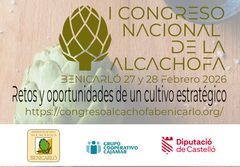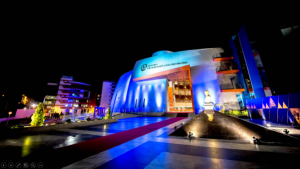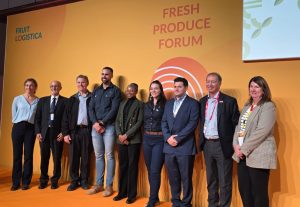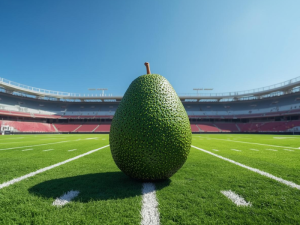He was named after his grandfather, a republican who, after seeing his friend die in the war, travelled from the front in Guadalajara to Torre Pacheco on a mule.
He has a large collection of diaries, in which he has marked where he was every day for over two decades. Murcia is nowhere to be found, but Warsaw, Kiev, Prague, Katowice and Moscow are the most common destinations.
He acts as a guide for use round his city and shows us corners that bring back memories, particularly of his years as a university student. He was the first of his family to go to university and he graduated in Geography and History.
Becoming a geographer and discovering the world has been a constant in your life. How many countries have you visited?
Well, although I have detailed where I was every day for over 20 years for my work, it never occurred to me to do the same with my leisure trips, which have also been multiple. I think I have certainly been in over 100 countries.
What was the last one you visited for leisure and which will be the next one?
My last two leisure trips have been to Los Angeles this summer, with my friend Antonio, and to Albania with another group of friends. In mid-February I will return to Buenos Aires, one of my favourite cities that I have visited over 18 times.
And for work?
The last was to Peru in December, and the next one will be to xxxx.
What memories do you have of your childhood?
I can still see myself, at the age of five, riding to school on my bike, with other children joining me along the dirt tracks. All of this after having a breakfast of two egg yolks with wine.
My memories are linked to the countryside. My family comes from the fields; for several generations they were farm landlords. As they say in my region, I am a country lad and from a very early age I had my jobs in the fields, such as feeding the rabbits or looking after the sheep.
I remember very well my passion for growing a row of melons alongside my father, who grew another one. After working with great care, if in the end the harvest was not good, I would have a great temper tantrum and would even blame God. I didn’t understand why God allowed my melons to fail. I think that there is no other region in Spain where the melon crops are as cosseted and known so well. There was a generation of older folks, who we all remember and who we admired for their passion. For example, Juan “el Largo” (‘Long John’) comes to mind.
Today, nobody even considers letting a child go to school on their own, let alone give them wine for breakfast, or have them work at ages 10 to 12.
It is totally understandable in today’s society, but things were very different in the countryside back then than they are now. Some people could think that I was exploited child labour, but nothing could be further from the truth, because I was a very happy child, doing the routine work in the fields.
Were you a good student?
As a child I was very run-of-the-mill; if I liked something, I studied, and if I didn’t, well I didn’t. I did work hard at university. I finished with eight distinctions and two excellents. I also could have stayed in the Physical Geography department, where I worked for six months, but, in the end, the pull of the land was greater. I became a self-taught student as an adult, and I studied what I thought would help me most. And, for that reason, I returned to the university to do a Master’s in Foreign Trade and, then, I spent a year in England learning English at top speed.
And how did a geographer land in the sector?
In short, I always say that I had worked summers in my village’s cooperative, which at that time only opened in the summer. I was young, but I held positions of responsibility and we experienced some problems outside our business, which we managed to save with top marks. With the arrival of the water transfer, the cooperative grew and, in 1990, I was given the possibility of working at the Institute of Promotion of Murcia, in Brussels, but as chance would have it, they sent me to Poland. This was the beginning of my relationship with the East. From this moment onwards, my life has been linked to this part of the world.
Do you never think of retiring?
I can’t see myself retired over the next ten years. I still have a group of friends from university, and last August we met up. Of 20 people, only two of us were still working, as most of them had been civil servants or worked in banking. I can assure you that I didn’t like this feeling. I prefer to have my work routine, to remain active.
Do you have any manias?
I’m not sure if it is a mania or an obsession. Every day of my life I analyse the weather, here and in different places around Europe. Meteorology was one of the subjects on my degree course, and I loved it. I have instruments to look into meteorological questions in depth and, as it is ever-changing, I carry out analyses several times a day.
Tell me about some of your passions
I have two, very simple ones: one is travelling and the other is eating well. I take advantage of any circumstance to discover the gastronomy of a place. Don’t ask me what I like best, because I like everything, as long as the food is good.
Do you cook?
The few times that I do, I think the results are quite good. As I am so fond of eating, I am quite interested in the recipes, but I usually eat out. Today, I will invite you to discover the fish of Cabo De Palos.
Do you practice any sport?
I am not a sports person. The most I do –and I started doing this after the pandemic– is to walk at a good speed along the banks of the Segura to the fields. I control the kilometres I cover, and I usually do around 105 per month.




















